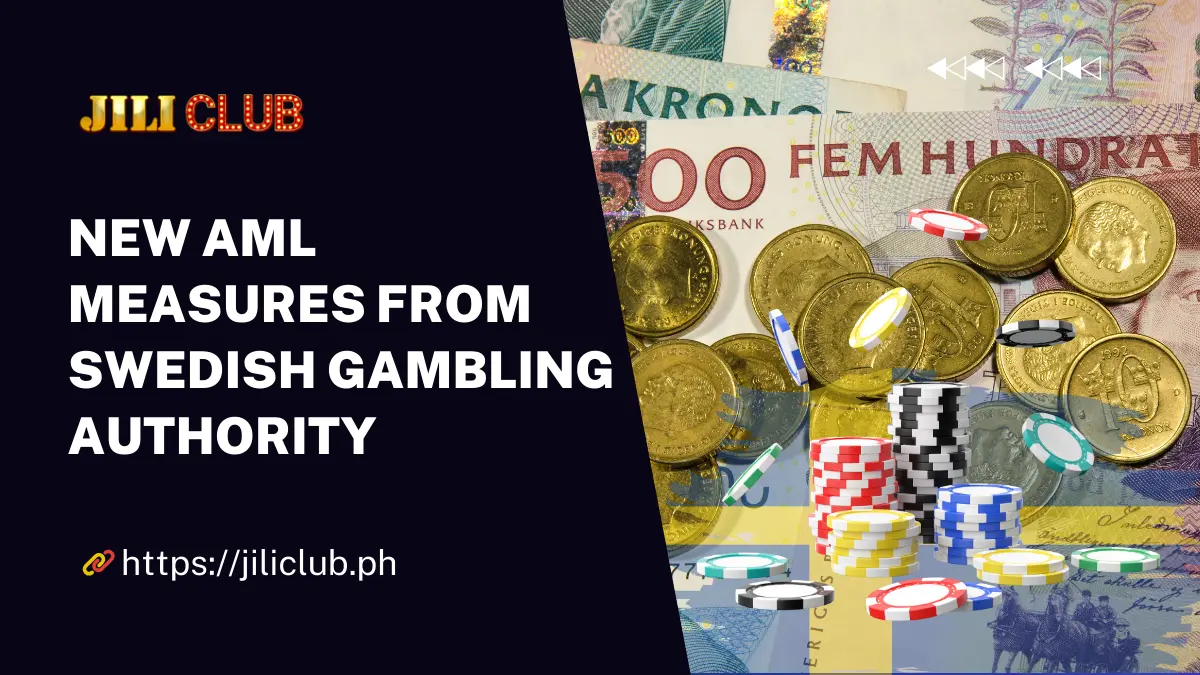The Swedish Gambling Authority, Spelinspektionen, has issued updated guidance and a new risk assessment to combat money laundering and terrorist financing within the gambling industry on February 4. The move comes amid increasing reports from the gambling sector to the Financial Intelligence Unit (FIPO), highlighting rising concerns over financial crime in the industry.
Spelinspektionen’s updated guidance is part of a broader effort to address the growing challenges of money laundering in Sweden’s gambling sector. In a statement, the authority emphasized that the gambling industry remains a significant risk area for money laundering, with accounts and companies potentially being exploited for illegal financial activities. Camilla Rosenberg, the Director General of Spelinspektionen, explained, “We have seen a need for further clarification and guidance in this area. We have therefore revised our guidance and are also conducting a new risk assessment.”
The updated guidance aims to provide clearer directions for gambling operators, ensuring they can better identify and mitigate money laundering risks. Spelinspektionen has been working closely with other Swedish authorities, including the Swedish Financial Supervisory Authority, the Swedish Economic Crime Authority, and the Swedish Financial Police, to strengthen anti-money laundering (AML) efforts. Their combined efforts have been crucial in addressing the growing threats posed by illicit financial activities within the gambling sector.
The rise in reports to FIPO signals an increasing awareness among gambling operators about their responsibilities in detecting and preventing money laundering. This shift is in line with broader European efforts to tackle financial crime, particularly as gambling continues to grow as an online and international business.
In May 2024, the European Gaming and Betting Association (EGBA) expressed its support for the European Union’s newly approved anti-money laundering (AML) package. The European Council had finalized the EU’s new framework for combating financial crime, which is expected to have a significant impact on the gambling industry across member states. The EU’s enhanced AML package includes more stringent requirements for gambling operators, as well as new provisions for customer due diligence, reporting obligations, and the monitoring of suspicious transactions.
The European Union’s efforts to combat money laundering in gambling also received a boost from the creation of the new EU Anti-Money Laundering Authority (AMLA). As part of this framework, Spelinspektionen participated in the EU’s preparatory work for the authority’s establishment and the upcoming regulations on money laundering. The formation of AMLA signals the EU’s commitment to creating a unified approach to tackling financial crime, and member states like Sweden are working proactively to align their national regulations with these broader European initiatives.
Meanwhile, in neighboring Denmark, the Danish Gambling Authority, Spillemyndigheden, updated its own AML guidance in June 2024, further underlining the growing recognition across Europe of the gambling sector’s vulnerability to money laundering and the need for robust regulatory responses.
Spelinspektionen’s active role in addressing money laundering risks within the gambling industry has been ongoing throughout 2024. In addition to providing revised guidance, the authority has held several talks and advisory sessions to educate stakeholders on the risks of money laundering in the sector. These educational efforts are designed to help operators better understand the methods criminals may use to launder money through gambling activities, and how they can protect their businesses from becoming unwitting facilitators of such illegal activities.
The Swedish authority’s commitment to strengthening its fight against money laundering has been aided by its partnerships with key financial and law enforcement bodies, including the Swedish Financial Supervisory Authority and the Swedish Economic Crime Authority. These collaborations have facilitated a coordinated approach to tackling financial crime in the gambling sector.
As the European Union continues to tighten its regulations surrounding financial crime, Spelinspektionen’s updated guidance and risk assessment represent Sweden’s continued commitment to preventing money laundering and terrorist financing within the gambling industry. The rising volume of reports to FIPO suggests that gambling operators are becoming more vigilant and compliant with their obligations, but authorities like Spelinspektionen remain vigilant in their efforts to adapt to the ever-evolving landscape of financial crime.
